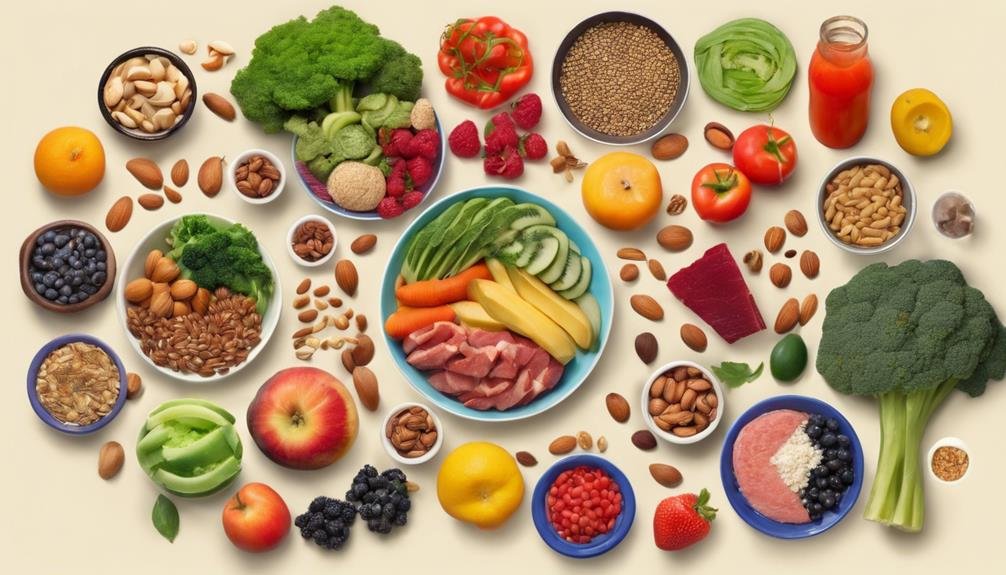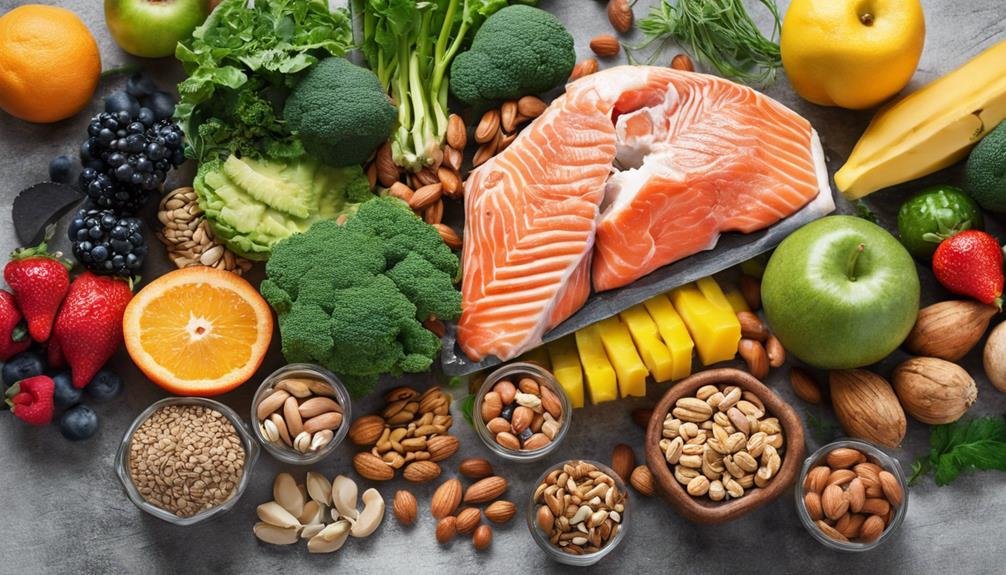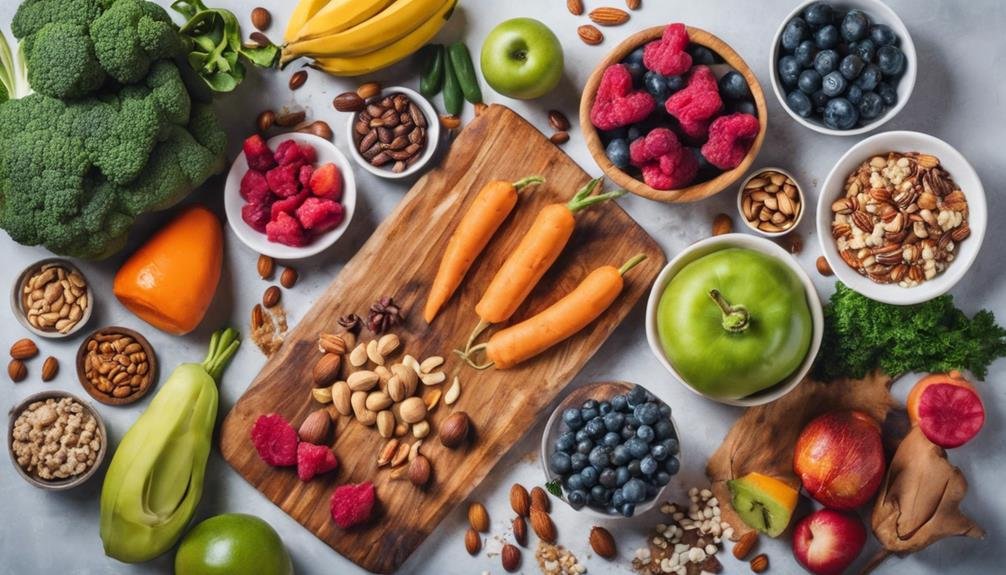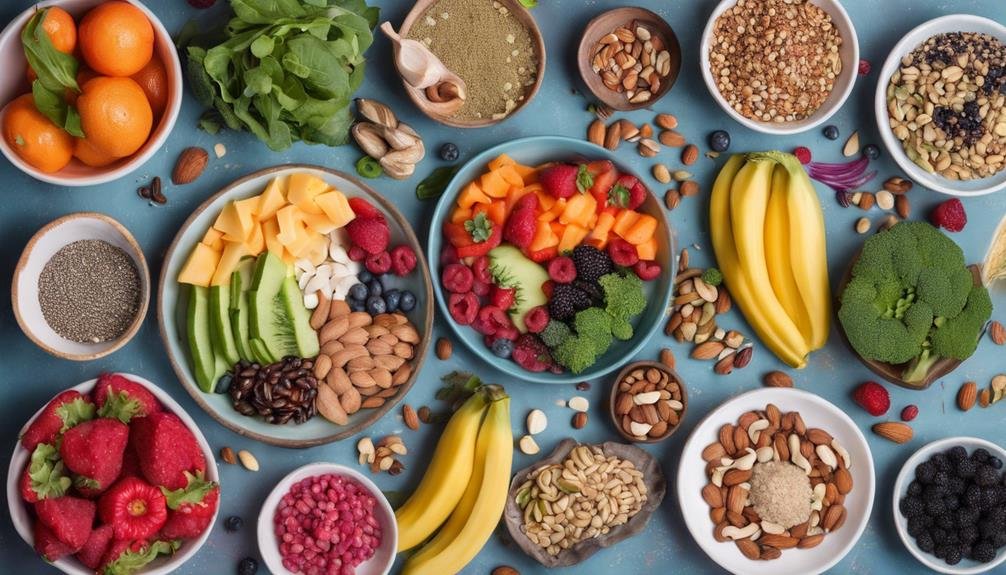Did you know that cancer is the second leading cause of death globally, responsible for an estimated 9.6 million deaths in 2018 alone? The question of whether the Paleo diet can help in the fight against cancer sparks intriguing debates and demands a closer look at the scientific evidence behind its potential benefits. As you explore the connection between the Paleo diet and cancer prevention, you may uncover compelling insights that shed light on its impact on combating this pervasive disease.
History of the Paleo Diet
The history of the Paleo Diet dates back to the 1970s when it was first introduced by gastroenterologist Walter L. Voegtlin. Voegtlin proposed that our modern diets, which include processed foods and grains, aren't in harmony with our Paleolithic ancestors' eating habits. He believed that by mimicking the diet of early humans, which consisted mainly of lean meats, fish, fruits, vegetables, nuts, and seeds, individuals could achieve better health.
In the early 2000s, the Paleo Diet gained popularity through the publication of books by Loren Cordain, a renowned expert in the field of evolutionary nutrition. Cordain emphasized the importance of consuming whole foods that our bodies are genetically adapted to digest, avoiding grains, dairy, and processed foods.
Today, the Paleo Diet continues to be a popular choice for individuals looking to improve their health and well-being by focusing on nutrient-dense, whole foods. Its historical roots in evolutionary biology and the idea of consuming foods that our bodies have evolved to process have contributed to its enduring appeal.
Cancer and Inflammation Connection
Research indicates a significant link between cancer development and chronic inflammation within the body. Chronic inflammation can create an environment that supports cancer growth and progression. Understanding this connection is crucial in exploring how dietary choices, like the Paleo diet, may impact cancer prevention and treatment.
Here are key points to consider:
- Inflammatory Cytokines: These are signaling molecules that play a role in inflammation. High levels of inflammatory cytokines have been linked to cancer development.
- Immune System Suppression: Chronic inflammation can weaken the immune system, making it less effective at recognizing and fighting cancer cells.
- Tumor Microenvironment: Inflammation can alter the surrounding environment of tumors, promoting their growth and metastasis.
- DNA Damage: Inflammatory processes can lead to DNA damage, increasing the risk of mutations that can contribute to cancer development.
Nutrient-Dense Foods in Paleo Diet
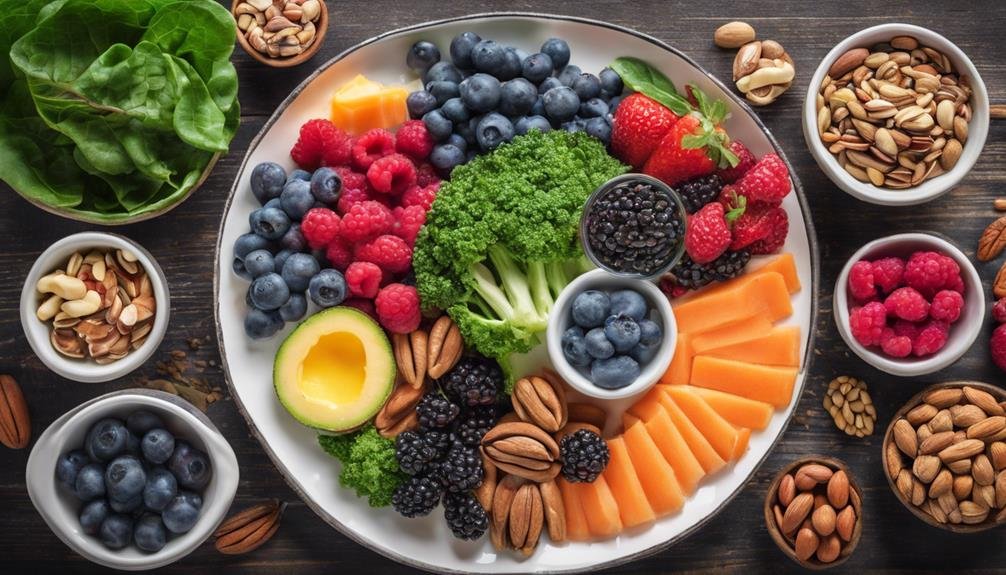
When considering the Paleo diet in relation to cancer prevention and treatment, it's essential to focus on the nutrient-dense foods that this dietary approach emphasizes. The Paleo diet encourages the consumption of whole, unprocessed foods rich in essential nutrients such as vitamins, minerals, and antioxidants. These foods include lean proteins like grass-fed meats, poultry, and fish, which provide important amino acids for cell repair and growth.
Additionally, the diet promotes the intake of a variety of fruits and vegetables, offering a wide range of phytochemicals that have been associated with reduced cancer risk. Nuts and seeds, another staple of the Paleo diet, contribute healthy fats and micronutrients that support overall health and immune function.
Impact on Insulin Sensitivity
Numerous studies have shown that following a Paleo diet can have a significant impact on insulin sensitivity. This dietary approach emphasizes whole, unprocessed foods that can positively influence how your body responds to insulin, a hormone crucial for regulating blood sugar levels. Here are four key ways the Paleo diet affects insulin sensitivity:
- Low Glycemic Load: By focusing on whole foods like lean proteins, fruits, vegetables, and healthy fats, the Paleo diet helps maintain stable blood sugar levels, reducing the demand for insulin production.
- Elimination of Processed Sugars: Cutting out refined sugars and processed foods decreases the likelihood of blood sugar spikes, supporting better insulin sensitivity over time.
- Increased Fiber Intake: The high fiber content in fruits, vegetables, and nuts in the Paleo diet slows down the absorption of glucose, preventing rapid blood sugar fluctuations and promoting insulin efficiency.
- Healthy Fats: Consuming sources of healthy fats like avocados, nuts, and olive oil can enhance insulin sensitivity and improve overall metabolic health.
Role of Gut Microbiome
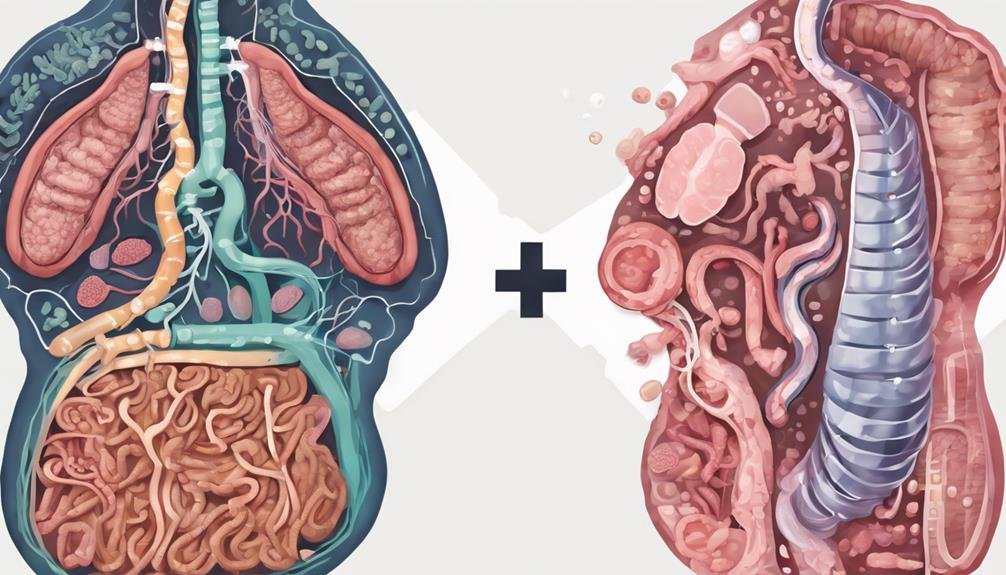
An essential aspect often overlooked in discussions about the Paleo diet is its impact on the gut microbiome. The gut microbiome plays a crucial role in maintaining overall health, including influencing the immune system, digestion, and even potentially reducing the risk of cancer.
Research suggests that the Paleo diet, rich in whole foods like fruits, vegetables, lean proteins, and healthy fats, can positively alter the composition of the gut microbiome. By eliminating processed foods, sugars, and grains, the Paleo diet promotes the growth of beneficial bacteria while reducing harmful microbes that can contribute to inflammation and disease.
Studies have shown that a balanced and diverse gut microbiome is associated with a lower risk of certain types of cancer. By following a Paleo diet that supports a healthy gut microbiome, you may be creating an environment in your body that's less conducive to cancer development.
Therefore, paying attention to the role of the gut microbiome in the context of the Paleo diet could be a valuable strategy in the fight against cancer.
Effects on Oxidative Stress
Having explored the impact of the Paleo diet on the gut microbiome and its potential role in reducing cancer risk, it's crucial to now examine its effects on oxidative stress. Oxidative stress occurs when there's an imbalance between free radicals and antioxidants in the body, potentially leading to cell damage and increased cancer risk.
Here are four ways the Paleo diet may impact oxidative stress:
- Rich in Antioxidants: The diet emphasizes fruits, vegetables, nuts, and seeds, which are high in antioxidants that combat free radicals.
- Reduction in Processed Foods: By eliminating processed foods and refined sugars, the intake of pro-inflammatory substances decreases, reducing oxidative stress.
- Healthy Fats: The inclusion of healthy fats like omega-3 fatty acids from fish and nuts may help reduce inflammation and oxidative stress.
- Quality Protein Sources: Lean meats and fish in the Paleo diet provide essential amino acids that support antioxidant enzyme production, aiding in the body's defense against oxidative damage.
Anti-Cancer Properties of Foods
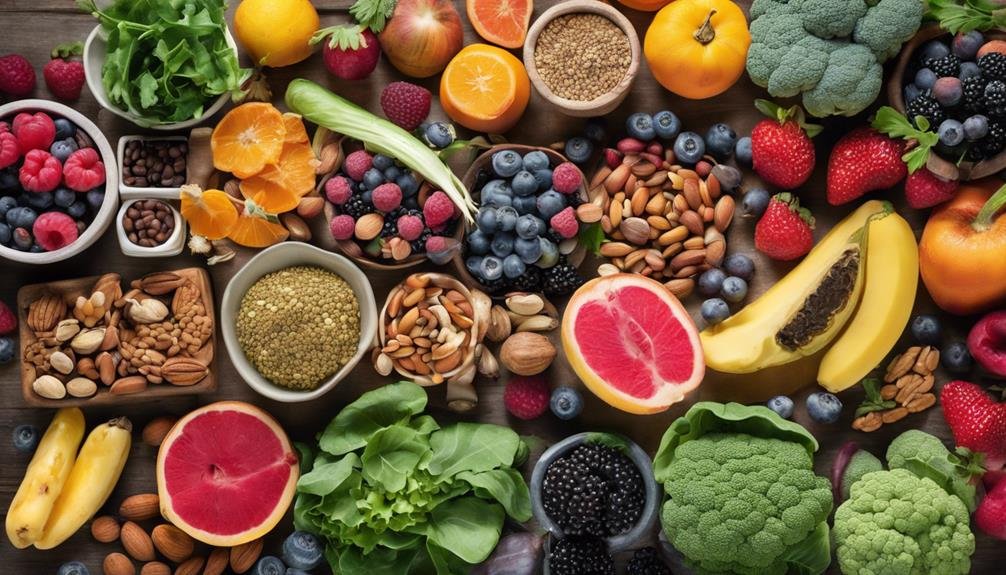
To comprehend the potential anti-cancer properties of foods, it's essential to delve into the scientific evidence supporting their role in cancer prevention and treatment. Various foods have been studied for their ability to combat cancer due to their rich nutrient content and bioactive compounds.
For example, cruciferous vegetables like broccoli and kale contain sulforaphane, which has shown anti-cancer effects by inhibiting the growth of cancer cells.
Berries are another group of foods known for their anti-cancer properties due to their high levels of antioxidants, such as anthocyanins and ellagic acid, which help protect cells from damage that can lead to cancer development.
Additionally, garlic has been studied for its potential to reduce the risk of certain types of cancer due to its organosulfur compounds. By incorporating a variety of these anti-cancer foods into your diet, you can potentially support your body in its fight against cancer.
Studies on Cancer and Paleo Diet
Research on the relationship between the Paleo diet and cancer has garnered significant attention in recent years. Here are some key findings from studies exploring the impact of the Paleo diet on cancer:
- Reduction in Inflammation: The Paleo diet's focus on whole foods, fruits, vegetables, and healthy fats has been associated with lower levels of inflammation in the body, which is crucial in cancer prevention.
- Improved Insulin Sensitivity: Studies have shown that following a Paleo diet may improve insulin sensitivity, potentially reducing the risk of certain types of cancer that are linked to insulin resistance.
- Weight Management: The Paleo diet's emphasis on lean proteins and unprocessed foods can aid in weight management, which is essential in reducing the risk of obesity-related cancers.
- Antioxidant Intake: By promoting the consumption of antioxidant-rich foods like berries and nuts, the Paleo diet may help combat oxidative stress, which plays a role in the development of cancer.
Potential Benefits for Cancer Patients
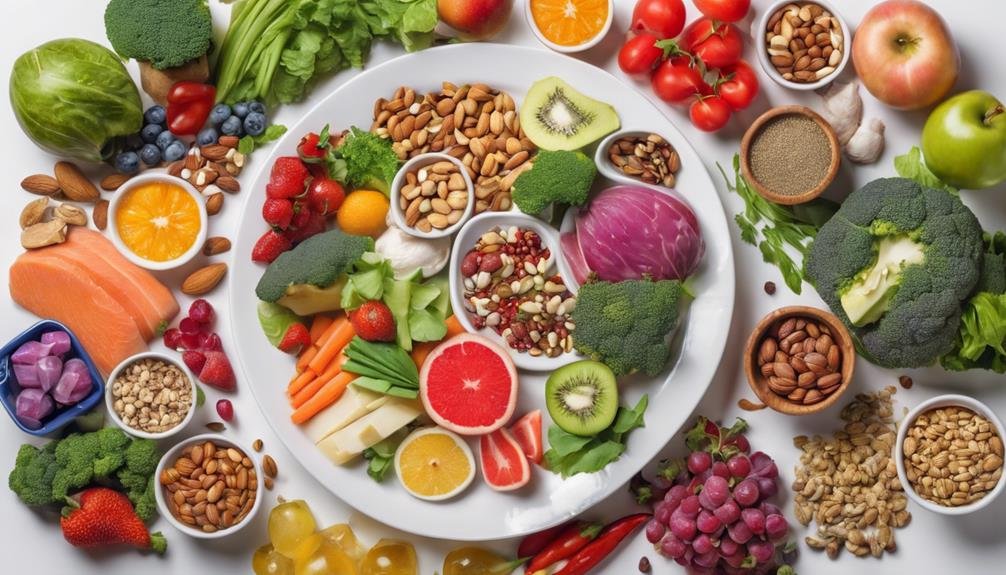
The potential benefits of the Paleo diet for cancer patients extend beyond prevention and may play a role in supporting overall health during treatment. Research suggests that the Paleo diet's emphasis on whole foods, lean proteins, fruits, and vegetables can provide essential nutrients and antioxidants that support the body's immune system. Additionally, the diet's restriction of processed foods, sugars, and grains may help reduce inflammation, which is crucial in managing cancer-related symptoms and side effects of treatment.
By following a Paleo diet, cancer patients may experience improved energy levels, better weight management, and enhanced overall well-being. The high nutrient density of the diet can help combat malnutrition, a common issue among cancer patients undergoing treatment. Furthermore, the avoidance of processed foods and sugars may contribute to stabilizing blood sugar levels, which is particularly beneficial for individuals dealing with certain types of cancer.
While more research is needed to fully understand the direct impact of the Paleo diet on cancer treatment outcomes, its focus on whole, nutrient-dense foods and avoidance of processed ingredients suggest potential benefits for cancer patients in supporting their health and well-being during treatment.
Criticisms and Controversies
Amidst the growing popularity of the Paleo diet for cancer patients, criticisms and controversies have emerged regarding its efficacy and long-term sustainability.
- Nutrient Deficiencies: Critics argue that the strict limitations on certain food groups in the Paleo diet may lead to deficiencies in essential nutrients like calcium, vitamin D, and fiber, which are crucial for overall health and cancer prevention.
- High Saturated Fat Content: Some experts express concerns that the high consumption of saturated fats from sources like red meat and coconut oil in the Paleo diet could potentially increase the risk of heart disease and certain types of cancer.
- Lack of Long-Term Studies: The lack of long-term studies on the effects of the Paleo diet specifically on cancer prevention and treatment leaves uncertainties about its sustained benefits and potential risks.
- Difficulty in Adherence: Critics argue that the restrictive nature of the Paleo diet, which eliminates entire food groups like grains and dairy, may make it challenging for individuals, especially cancer patients, to adhere to the diet in the long run.
Recommendations for Cancer Prevention
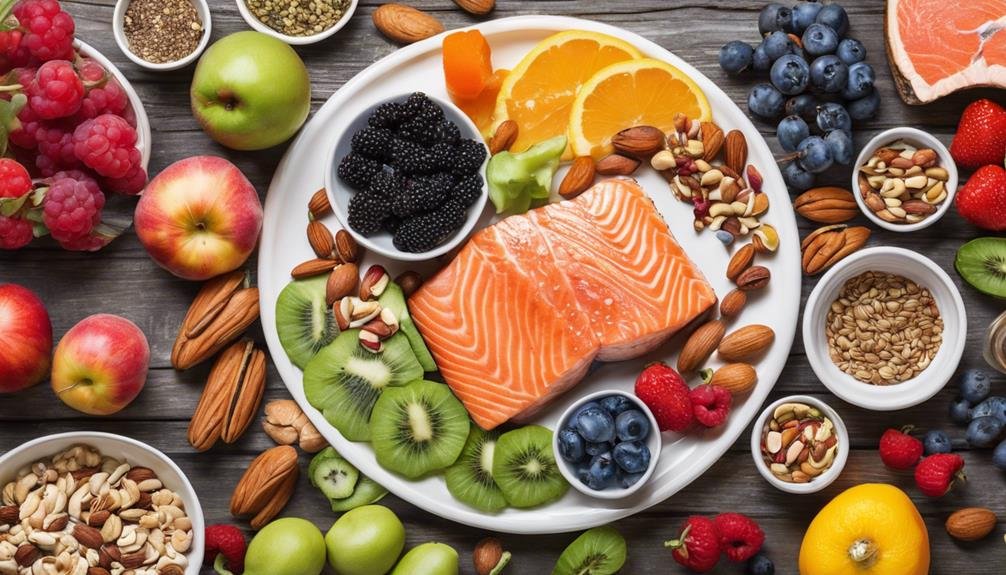
For optimal cancer prevention, individuals should focus on maintaining a well-balanced diet that includes a variety of nutrient-rich foods. Research suggests that consuming a diverse range of fruits, vegetables, whole grains, lean proteins, and healthy fats can help reduce the risk of developing cancer. Including colorful fruits and vegetables in your daily meals provides essential vitamins, minerals, and antioxidants that support your body's immune system and help combat oxidative stress, a factor linked to cancer development.
Limiting the intake of processed meats, sugary beverages, and foods high in saturated fats is also crucial for cancer prevention. These foods have been associated with an increased risk of certain types of cancer, such as colorectal and breast cancer. Instead, opt for lean proteins like fish, poultry, beans, and nuts, which offer important nutrients without the potential harmful effects of processed meats.
Additionally, maintaining a healthy weight through regular physical activity and portion control can further reduce your risk of cancer. Engaging in at least 150 minutes of moderate-intensity exercise per week and avoiding excessive caloric intake can help you achieve and maintain a healthy weight, which is essential for overall health and cancer prevention.
Future Research Directions
To pave the way for advancements in cancer prevention strategies, future research endeavors should focus on exploring the impact of personalized dietary recommendations tailored to individual genetic profiles. This tailored approach holds promise in optimizing nutrition to potentially reduce cancer risk and improve outcomes.
Here are four key areas for future research to consider:
- Genetic Variability: Investigate how genetic variations influence individual responses to specific dietary components, potentially identifying personalized dietary interventions.
- Microbiome Interaction: Explore the intricate relationship between gut microbiota, diet, and cancer development to develop targeted dietary strategies.
- Long-term Studies: Conduct longitudinal studies to assess the sustained effects of dietary interventions on cancer incidence and progression.
- Integration of Technology: Utilize advanced technologies like artificial intelligence to analyze vast amounts of data and generate personalized dietary recommendations based on genetic and lifestyle factors.
Frequently Asked Questions
Can the Paleo Diet Cure Cancer?
Can the paleo diet cure cancer?
While the paleo diet emphasizes whole foods and limits processed items, there's no definitive evidence to support the claim that it can cure cancer. Cancer treatment requires medical intervention like chemotherapy, radiation, or surgery.
However, adopting a healthy diet, including elements of the paleo diet, can complement traditional cancer treatments and promote overall well-being.
Always consult with healthcare professionals for personalized advice.
Is Organic Food Necessary for a Paleo Diet?
Organic food isn't a strict requirement for a Paleo diet. While opting for organic can reduce exposure to pesticides and additives, the focus of Paleo is on consuming whole, minimally processed foods.
In some cases, conventional produce can be an affordable and nutritious option. It's essential to prioritize fresh, high-quality ingredients within the framework of the diet to maximize its health benefits without solely relying on organic options.
Are There Specific Paleo Recipes for Cancer Patients?
When looking for specific paleo recipes for cancer patients, you can find nutrient-dense options tailored to support overall health. Incorporating anti-inflammatory foods like leafy greens, berries, and lean proteins can aid in promoting wellness during cancer treatment. By focusing on whole, unprocessed ingredients, these recipes can provide essential nutrients and energy to help maintain strength and well-being throughout the journey.
How Does the Paleo Diet Affect Chemotherapy Outcomes?
The Paleo diet can impact chemotherapy outcomes positively by providing nutrient-dense foods that support overall health and potentially reduce inflammation. By focusing on whole foods like lean proteins, fruits, vegetables, and healthy fats, the diet may help maintain energy levels, support the immune system, and reduce side effects of treatment.
However, individual responses can vary, so consulting with a healthcare provider before making significant dietary changes during chemotherapy is essential for personalized guidance.
Can the Paleo Diet Prevent Cancer Recurrence?
To address cancer recurrence, the Paleo diet's emphasis on whole foods and avoidance of processed items may support overall health. While research is ongoing, adopting a diet rich in lean proteins, fruits, vegetables, and healthy fats aligns with general cancer prevention guidelines. However, specific evidence linking the Paleo diet to cancer recurrence prevention remains limited. Always consult with healthcare providers for personalized recommendations in cancer care and prevention.
Conclusion
In conclusion, the Paleo diet offers a promising approach in the fight against cancer by addressing key factors like inflammation, insulin sensitivity, gut health, and oxidative stress. By focusing on whole, nutrient-dense foods, this dietary approach may serve as a valuable tool in cancer prevention and treatment. As the saying goes, "you are what you eat," and adopting a Paleo-inspired lifestyle may help nourish your body and reduce cancer risk.
